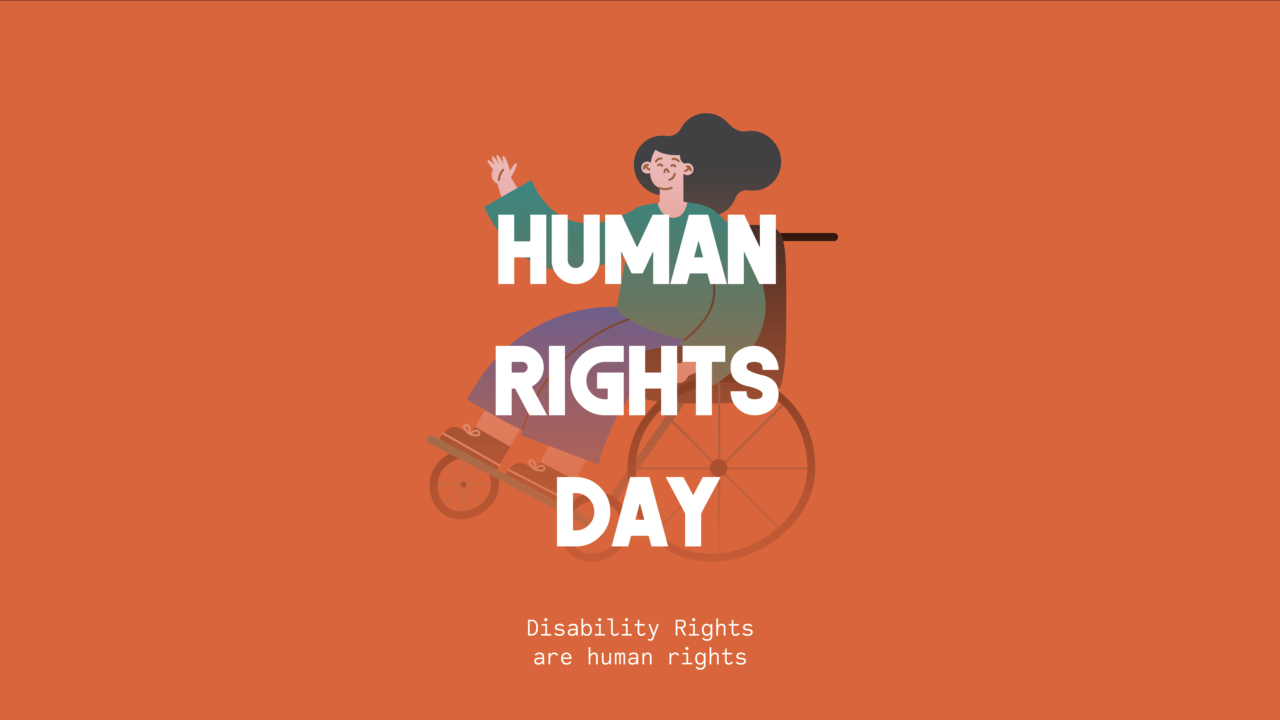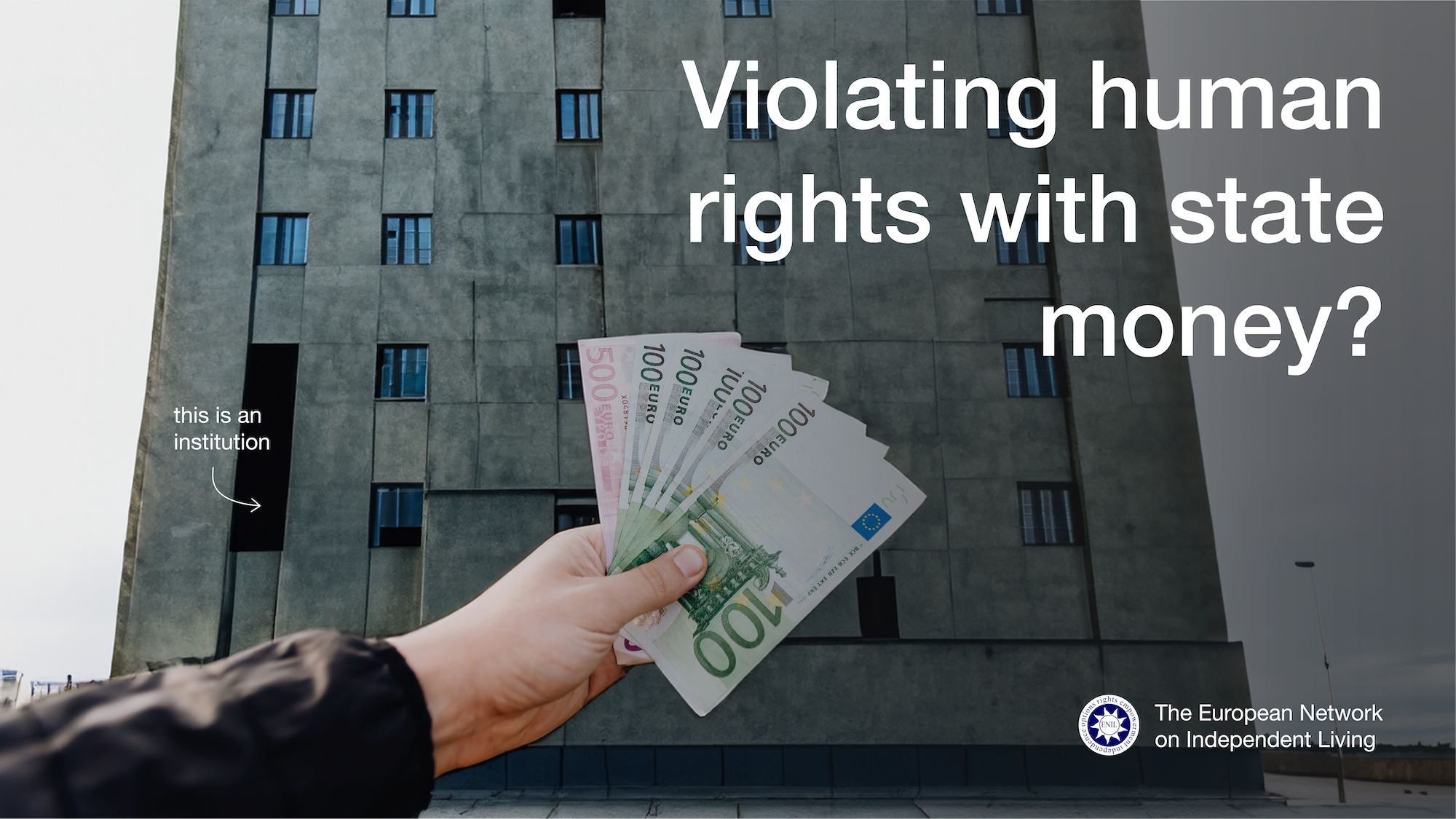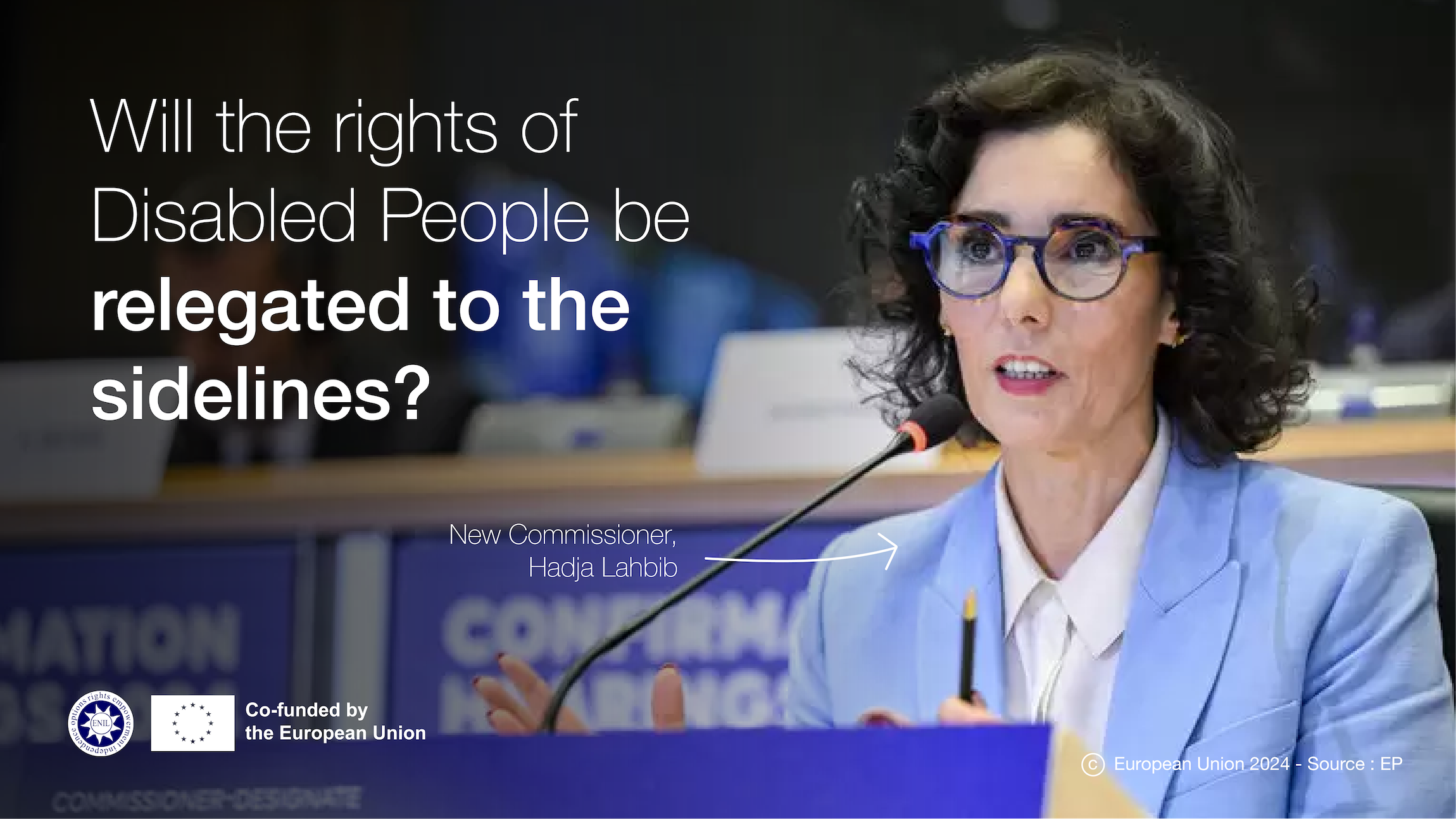The International Human Rights Day should serve as a reminder on the insufficient access of disabled people to human rights. The European Union has recently missed some chances to enact changes for the better but wen policy initiatives with potential are arriving on the agenda.
Florian Sanden, ENIL Policy Coordinator, florian.sanden@enil.eu
The UN Convention on the Rights of Persons with Disabilities (UNCRPD) codifies the right of disabled people to access all areas of life non-disabled people have access to and that this right is a human right. For example, Art. 19 of the convention says that disabled people have the right to live free from residential institutions such as nursing homes or psychiatric hospitals, as ordinary citizens in their own houses. Art. 9 says that state parties need to ensure accessibility in areas such as physical environments, transportation, information and communication. Art. 27 states that disabled people have the right employment, art. 24 that we have a right to education and art. 25 that we have a right to health care.
How Disabled People still can not enjoy full human rights
For all examples selected there is significant evidence that implementation of those rights has still not taken place. According to the two major studies on the subject the number of disabled people living in institutions as actually increased between 2007 and 2020. Disabled people themselves evaluate the implementation of art. 19 is inadequate. A comparative study of ENIL-member organisations MEOSZ revealed that many built environments are not accessible to disabled people, even when they are labelled as such. ENIL activists complain about this too and rightfully so. When it comes to the right to employment many disabled people are still excluded. In the EU, 50,6% of disabled people are employed, compared to 74,8% of non-disabled people. This figure does not include disabled people working in sheltered workshops. In Germany alone this figure is estimated to stand at 330.000 people. Across Europe, authorities are still failing to provide every disabled person with an education that most non-disabled people receive. In France 40.000 autistic children are not receiving any kind of school education. In other countries such as Austria autistic children might be taken out of school by authorities as well. When it comes to health care, disabled people and parents are still pushed towards risky, unproven or harmful treatments such as experimental surgeries or applied behavioral analysis.
The EU policy agenda
Many disability activists in fact voice the opinion that the access to our human rights are worsening again, that we are moving backwards. A case in point is the European Care Strategy. Yesterday the Council of the EU adopted a recommendation on long-term care that allows residential institutions to be offered as a service to be disabled people, which is not in line with the UNCRPD. To improve the Care Strategy, ENIL launched an intense lobby campaign and provided detailed input. Unfortunately, national governments who make up the Council of the EU, did not take any advise on board.
Implementing art. 19
We must now look to 2023 and the next policy initiatives on the agenda. The European Strategy on the Rights of Persons with Disabilities says that “the Commission will, by 2023, issue guidance recommending to Member States improvements on independent living and inclusion in the community”. In addition, “the Commission will present, by 2024, a specific framework for Social Services of Excellence for persons with disabilities”. The EU recommendation on long-term care will make it more difficult to implement art. 19. The 2023 guidance on Independent Living and the 2024 framework for Social Services are key opportunities to make up for the opportunity lost in the long-term care recommendation.
It is key that we push for the perspective expressed in the new Guidelines on Deinstitutionalisation, including in emergencies that were adopted by the Committee on the Rights of Persons with Disabilities in September. The new DI guidelines explain that it is not the type of building that defines whether you are living in an institution. It is the living arrangements surrounding a person such as: “obligatory sharing of assistants with others and no or limited influence as to who provides the assistance; isolation and segregation from independent life in the community; lack of control over day-to-day decisions; lack of choice for the individuals concerned over with whom they live; rigidity of routine irrespective of personal will and preferences; identical activities in the same place for a group of individuals under a certain authority”. Are settings that function along these lines need to be closed.
At the same time we need an expansion of community based services and especially personal assistance like it has never happened before. The new guidelines provide a key list of such services: “Support services include personal assistance, peer support, supportive caregivers for children in family settings, crisis support, support for communication, support for mobility, provision of assistive technology, support in securing housing and household help, and other community-based services.” Personal assistance is mentioned as the service number one: “Services must be individualized, based on individual needs, and controlled by the user. The user should be able to decide the degree to which they manage the service themselves, either acting as employer or engaging the service from a variety of providers.” Personal assistance schemes must involve direct payments, through personal budgets. They must allow users to freely choose their assistance. There must be no cost-ceiling or out of pocket payments. Access to the service, once approved, must be portable within a country and across borders. Disabled people living in institutions must have access to personal assistance to enable them to move into their own houses.
Implementing art. 27
The provision of personal assistance is also key so that disabled people can go to work. In September the European Commission adopted a document on policy initiatives to be developed at EU level. Yesterday, the EU Council adopted conclusions on the inclusion of persons with disabilities in the labour market. ENIL will publish a statement on these proposals shortly.
Implementing articles 24 and 25
To implement these articles, the EU-level must unblock the horizontal equal treatment directive for the equal access of disabled people to social protection, healthcare, education and goods and services, including housing, which has been blocked by member states since 2008. The Council recommendation on early childhood education and care which was adopted on September 8 is actually a step in the right direction, due to its emphasis on the integration of disabled children into mainstream services.
Implementing Art. 9
To ensure EU funds are only spend on infrastructure projects which are truly accessible more must be done to ensure legislation provides clear rules and that laws are implemented correctly. To do the first, we must push for better formulations in the upcoming negotiations concerning the next funding period. To ensure better implementation of both articles 19 and 9 we need to continue to insist in a thorough application of the Ombudsman report from April this year.
At ENIL we will use all available means at our disposal to ensure these policy initiatives are shaped in a way that has a positive impact on the human rights of disabled people.



